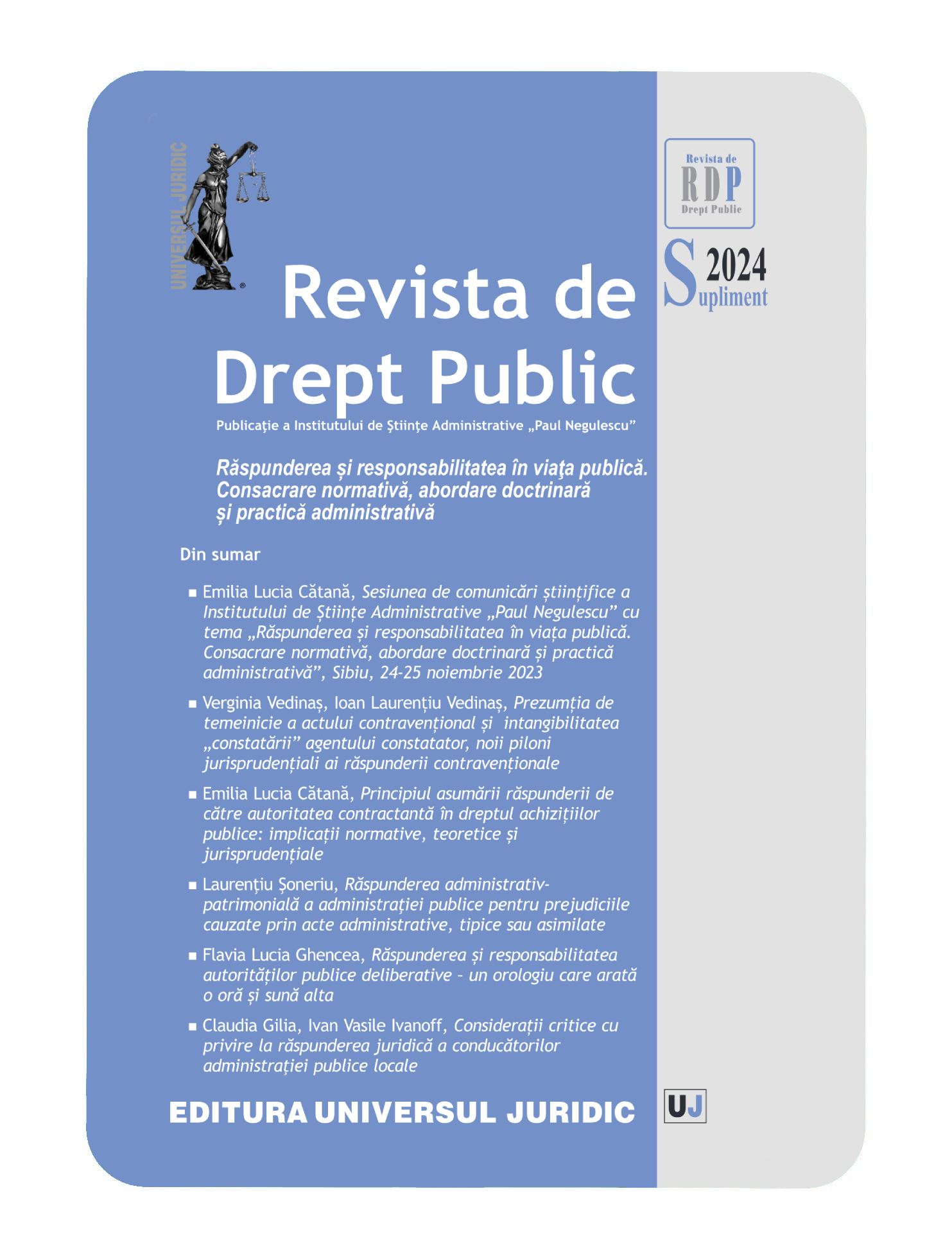Încasarea amenzilor
The collection of fines
Author(s): Ana Cristina CosteaSubject(s): Law, Constitution, Jurisprudence, Civil Law
Published by: Universul Juridic
Keywords: payment of fine; voluntary execution; enforcement of fine;
Summary/Abstract: Enforcement of uncontested or contested fines that have become final following the judicial procedure must be carried out effectively, as the end point of the infringement procedure, in order to fulfil the preventive and punitive roles of the sanction. A fine is the most commonly applied principal penalty for a contravention, with usually generous general and special limits, which allow a fair individualisation of the penalty according to the criteria provided for in Article 21(2) of the Treaty. 3 of GC 2/2001. The person who imposes the fine is usually the official himself, mentioning it in the report, including the possibility for the offender to pay half of the special minimum within 15 days. To the extent that the offender agrees to take advantage of this facility, namely to pay within 15 days half of the special minimum, he does not lose the right to challenge the fine, because payment does not inactivate the presumption of innocence which he enjoys, but only the offender is a prudent and diligent person, who, not being able to know from the outset, objectively, the outcome of a possible legal action, takes the measures that the law recognises in his favour to mitigate as much as possible the future financial loss. Following the two stages of jurisdiction, at first instance and on appeal, the outcome of the infringement complaint may be negative for the offender, if the claim is rejected, or positive, if the fine imposed is re-indexed and a lower fine is definitively imposed, or the fine imposed is replaced by a warning, or the infringement report is annulled on grounds of formal or substantive illegality or unreasonableness. Payment of the fine will be made at the offender's town hall of residence, and it is irrelevant where the offence was committed or where the report was made. The offender can go to the Town Hall, to any Treasury office or to any post office or can choose to pay the fine via the Ghișeul.ro platform or via internet banking. Under Article 165(2) of the Code of Tax Procedure, fines are paid in priority to other taxes owed by the taxpayer. In all cases, if the person sanctioned is a legal person, the communication of final sanctions not voluntarily executed shall be made to the units subordinated to the Ministry of Public Finance – National Tax Administration Agency, in whose territorial district the offender has his tax domicile, as required by Article 39 para. 2 lit. b of OG no. 2/2001. According to Article 230 of the Code of Tax Procedure, enforcement begins with the communication of the summons. If the debt is not extinguished within 15 days of the communication of the summons or if the tax authority is not notified of the intention to initiate the mediation procedure, enforcement measures shall continue. The summons shall be accompanied by a copy of the enforcement order issued by the enforcement body. If this deadline is also ignored by the offender, the enforcement body will proceed to identify the debtor's assets and evaluate them. According to Article 222 of the Code of Tax Procedure, the enforcement body shall carry out the valuation through its own or independent valuation experts. If the fines are small and the offender has regular income, the uncollected fines are covered by distraint, otherwise the offender's assets may be sold.
Journal: Revista de Drept Public
- Issue Year: 2024
- Issue No: Supliment
- Page Range: 235-243
- Page Count: 9
- Language: Romanian
- Content File-PDF

